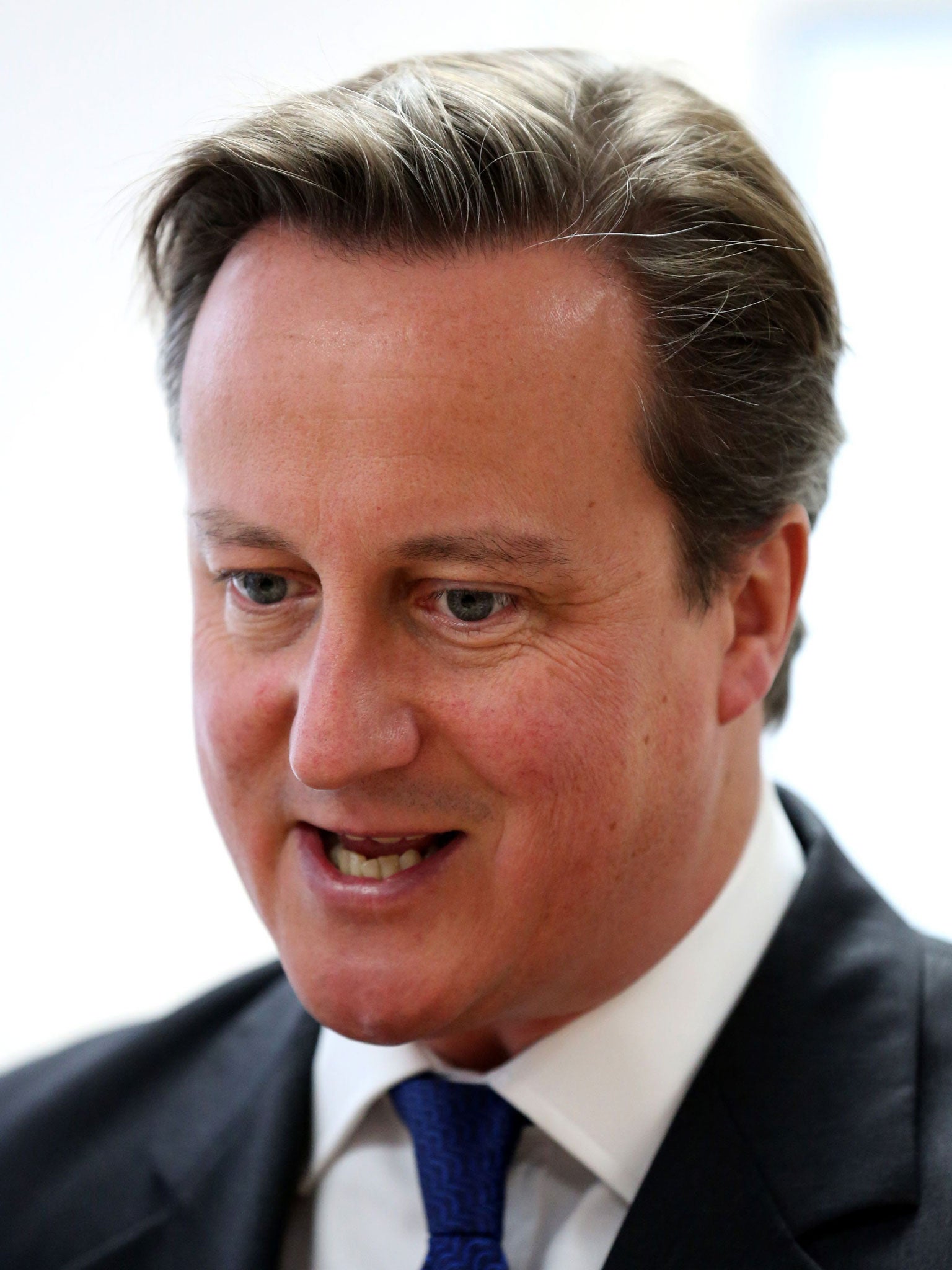David Cameron promotes business leaders' plan to slash Brussels red tape with blueprint to sweep away EU rules and regulations
PM prepares new blueprint for EU as row grows over migrant figures

A blueprint to sweep away European Union rules and regulations to cut company costs and create jobs will be presented by a taskforce of business leaders to the Cabinet at its weekly session today.
David Cameron will use the report to demand a more pro-active approach to cutting red tape by the European Commission when his fellow EU leaders discuss the issue at a summit next week. The proposals include scrapping the requirement for small firms in low-risk sectors to keep written health and safety assessments to save €2.7bn across Europe.
Yesterday the Prime Minister was embroiled in a row with the Brussels Commission after it dismissed the Government’s claims that migrants are being attracted to the UK to claim benefits and have NHS treatment. A study for the Commission played down the scale of “benefit tourism”, which ministers have used to justify plans to restrict access to state handouts and health care for new arrivals.
Laszlo Andor, the EU Employment Commissioner, said the majority of EU citizens move to another member state to work and that “so-called benefit tourism . . . is neither widespread nor systematic.” He said the Commission remains committed to ensuring that EU citizens can work in another member state “without facing discrimination or obstacles.”
According to the Commission, EU migrants pay more in taxes than they receive in benefits, and jobless EU migrants form only 1.2 per cent of the EU population in the UK. A Commission spokesman dismissed as “a gross and totally irresponsible misrepresentation” newspaper reports saying there are 600,000 unemployed EU migrants in Britain. He said this figure included older schoolchildren, students and retired people, pointing to UK Government statistics showing that fewer than 38,000 claimants of Jobseeker’s Allowance (JSA) were from EU nations, 2.6 per cent of those receiving the benefit.
But Downing Street insisted there was “widespread and understandable” public concern that benefits were among the “pull factors” that persuaded migrants to come to the UK. It defended plans to tighten the “habitual residence test” which determines whether EU migrants can claim benefits such as JSA, as well as auditing the NHS bill for treating EU nationals. “We don’t think the current system is working in the right way,” said Mr Cameron’s official spokesman.
In an unusual move, the Prime Minister invited the six bosses on his taskforce to address the full Cabinet. They are Marc Bolland, chief executive at Marks & Spencer; Ian Cheshire, chief executive at Kingfisher; Glenn Cooper, managing director at ATG Access; Louise Makin, chief executive at BTG; Dale Murray, an entrepreneur and angel investor and Paul Walsh, former chief executive at Diageo.
Their 30 EU-wide proposals include fast-tracking measures to cap fees for credit card, internet and mobile payments; abandoning plans to force small firms such as carpenters to pay fees to collect and transport waste and streamlining a rule on chemicals.
In a letter to fellow European leaders, Mr Cameron said the EU needed to go “further and faster” to tackle the costs and burdens which hamper companies. “We must also put business at the heart of this debate, listening to what they need to successfully compete,” he said.
Join our commenting forum
Join thought-provoking conversations, follow other Independent readers and see their replies
Comments
Bookmark popover
Removed from bookmarks